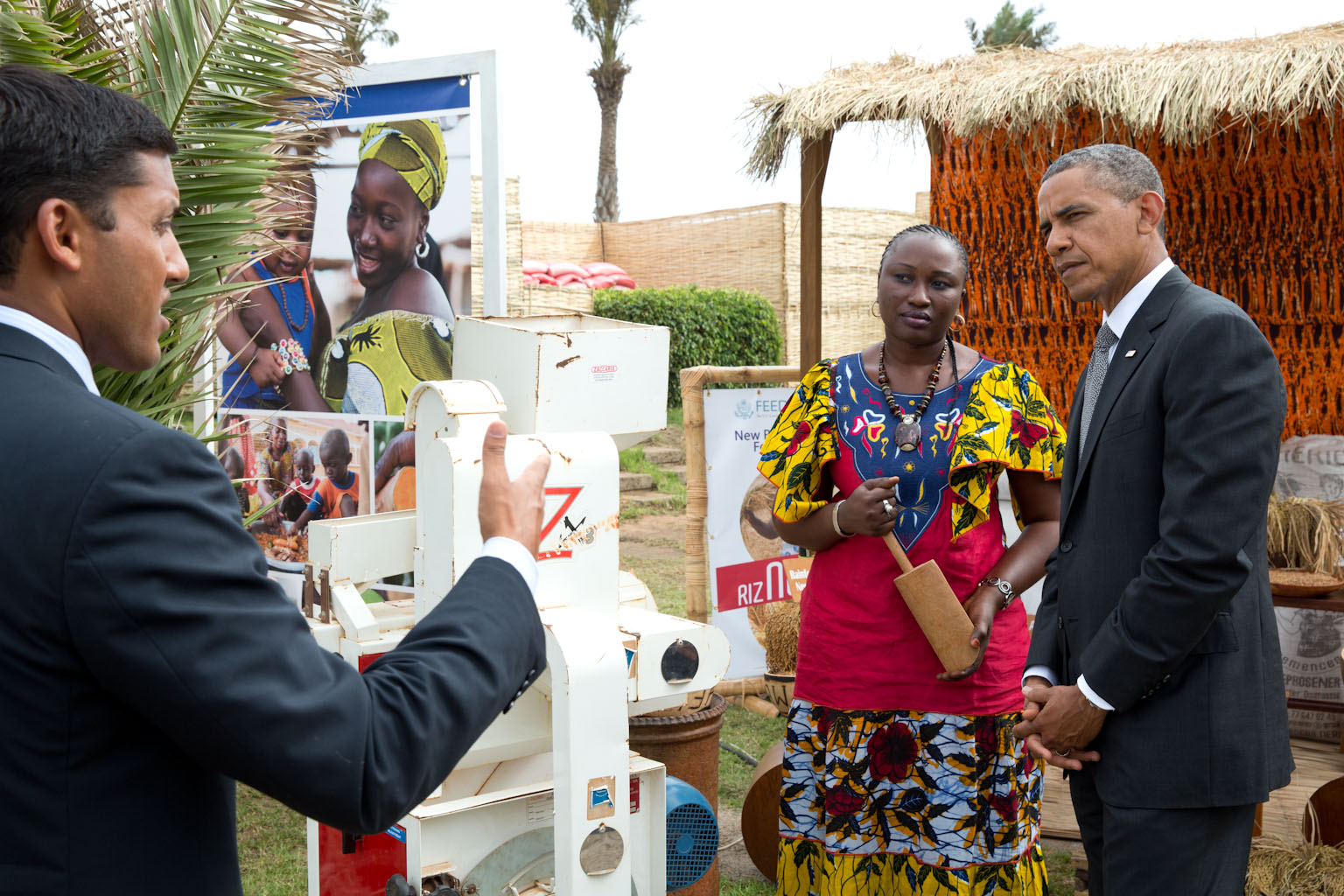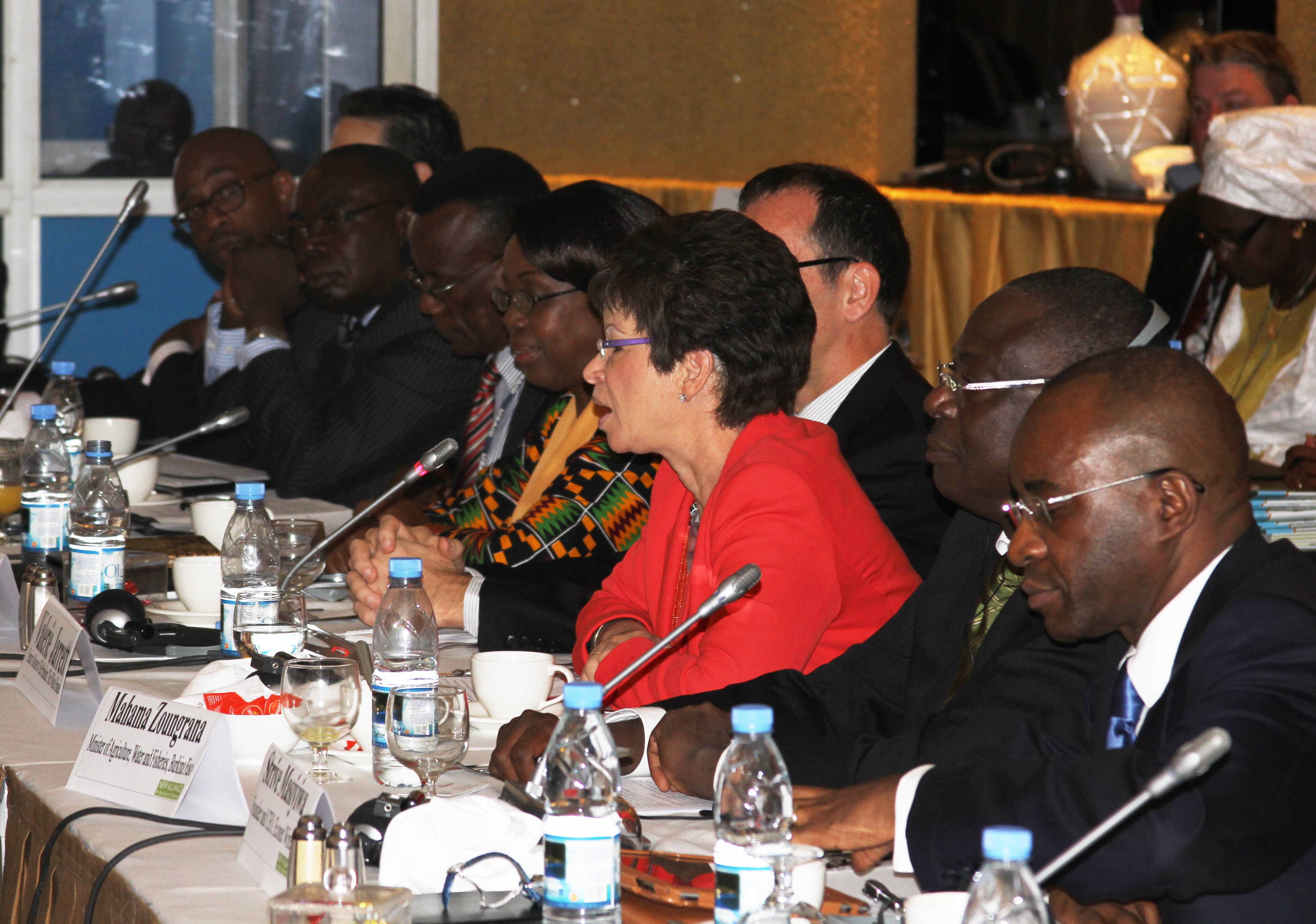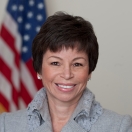
In 2009, President Obama called on global leaders to increase their focus on food security and hunger. Since then, the United States has partnered with African nations to spur increased agricultural growth, improve nutrition, and move people out of poverty.
Today, as part of our trip to three African countries, President Obama highlighted this partnership by meeting with farmers, innovators, and entrepreneurs who are improving the lives of smallholder farmers in Africa with new technology and methods of agriculture. In the capital of Dakar, Senegal, he saw how women are using small-scale, efficient rice mills to save time for women and increase productivity. He heard of ways to fortify sweet potatoes and beans to increase nutritional benefits. And he witnessed examples of using mobile technology to coordinate production and sales for small farmers to compete.
Earlier in the morning, I participated in the New Alliance for Food Security and Nutrition roundtable. Also attending from the U.S. delegation were USAID Administrator Rajiv Shah, Special Assistant to the President and National Security Council Senior Director for Democracy and Development Gayle Smith, U.S. Ambassador to Senegal Lewis Lukens, Millennium Challenge Corporation CEO Daniel Yohannes, USAID Assistant Administrator for Africa Earl Gast, and Peace Corps Director for Senegal Chris Hedrick.
During the roundtable, we spoke with high-level African officials from West African countries and regional institutions, as well as with key investors to discuss opportunities for further investment. We also highlighted U.S. food security initiatives across the continent and urged continued progress on reforms that would boost sustainable private investment in agriculture.
The roundtable was a part of the New Alliance for Food Security and Nutrition, which we launched at the G-8 last year. The New Alliance is a collection of commitments from countries to advance policy and partner with the private sector to help expand agriculture in Africa. In the first year, membership in the New Alliance has tripled. We started with Ghana, Ethiopia and Tanzania, and have now added six more countries—Côte d’Ivoire, Nigeria, Benin, Malawi, Mozambique, and Burkina Faso. And we look forward to Senegal joining later this year.
Working with the Comprehensive Africa Agriculture Development Program (CAADP) led by the African Union (AU), the New Alliance has leveraged over $3.7 billion in private investment in African agriculture and $1 billion in nongovernmental organization and civil society commitments for food security and nutrition.
In the last year, New Alliance countries have already made significant progress. For example:
- Ghana Nuts, once a recipient of U.S. Government development assistance, is now a leading agro processor and signed a letter of intent under the New Alliance to promote soya and expand corn procurement and processing in Ghana.
- The Government of Tanzania’s decision this year to end a longstanding export ban on corn, rice and other crops will help rural farmers collect fair prices for their harvests.
- In Ethiopia, DuPont has opened a state-of-the-art seed processing plant and warehouse that will help 35,000 smallholder corn farmers increase their yields by as much as 50 percent.
At the roundtable, we also highlighted President Obama’s Feed the Future initiative, which focuses on smallholder farmers, particularly women, and supports partner countries in developing their agriculture sectors to spur economic growth that increases incomes and reduces hunger, poverty, and under-nutrition. In 19 countries, Feed the Future has helped more than 7 million smallholder farmers adopt improved agricultural technologies or practices, and brought nearly 4 million hectares of land under improved cultivation and management practices.
Everyone agreed that Africa has the potential for more sustainable agricultural development, and we look forward to working together to realize that potential.
Please visit here for more information on our efforts in food security in sub-Saharan Africa.




